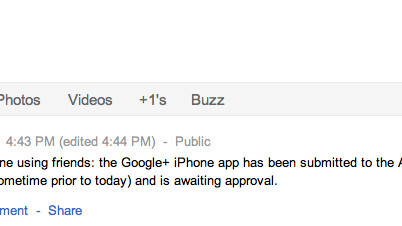
 As you might remember from our coverage only a few days ago, NIC.ly (the Libyan domain registry) blocked the vb.ly domain for being a “sex friendly URL shortener”. That rose fear in many that one of our favorite shortening services, Bit.ly, might also come under the knife.
As you might remember from our coverage only a few days ago, NIC.ly (the Libyan domain registry) blocked the vb.ly domain for being a “sex friendly URL shortener”. That rose fear in many that one of our favorite shortening services, Bit.ly, might also come under the knife.
Today, though, NIC.ly has released a statement that clarifies the move and gives further explanation into its practices.
In reference to the vb.ly incident: the domain’s purpose (proclaimed by its registrants themselves) was to serve as a ‘sex friendly URL shortener’, mainly for adult uses. This means that vb.ly had a policy different than the other URL shorteners, not using filters and encouraging the use of this service for creating links to adult sites and other “NSFW” links, thus placing vb.ly by definition in the porn/adult site category.
As our own Ahmad warned, in his writing, “Dorothy, this ain’t Kansas”. That is to say that there are distinct rules and regulations that domains registered with the .ly suffix must abide by. vb.ly had claimed that the shutdown was without warning, though NIC.ly states the contrary, going so far as to say that the contacts were attempted over a 3 week period and essentially forcing the hand of NIC.ly:
Contrary to vb.ly’s claims, they were contacted on numerous occasions to investigate these concerns, and over the course of these contacts vb.ly has ignored our efforts and even changed their contact numbers.
NIC.ly goes on to say that any domain shorter than 4 symbols will continue to be relegated only to sites that have a presence within Libya proper. As more domain shorteners become popular, Libya appears to be concerned with maintaining its solidarity for the shorter domains such as art.ly.
The good news, of course, is that bit.ly appears to be in the clear. As a Libyan-registered domain, operating under strict rules, the service has not yet seen any issues. With over 40 million clicks and $10 million in recent funding, you’ll surely hear a sigh of relief from the Bit.ly staff.
Get the TNW newsletter
Get the most important tech news in your inbox each week.





